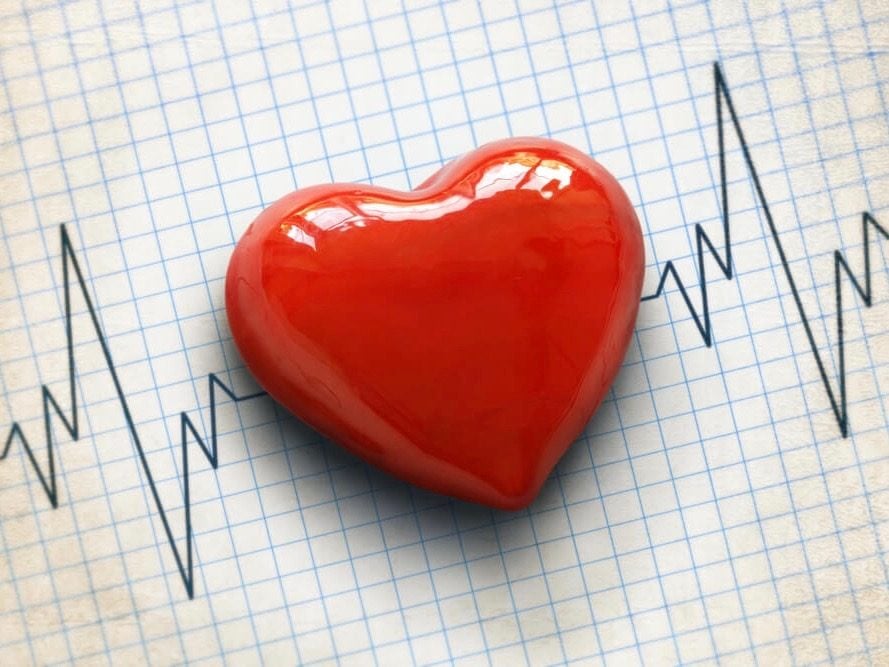This Is What Really Causes an Enlarged Heart, According to a Heart Doctor
An enlarged heart is a serious condition, but luckily, there are usually signs something’s wrong long before diagnosis.

The heart is usually a tight, football-shaped muscle that pumps oxygen-rich blood throughout the entire body. But when it gets sick, it becomes enlarged, and has to work harder and harder to do its job.
“The heart changes shape to become more round and spherical and bigger than its normal size,” says Sandhya Balaram, MD, associate professor of cardiovascular surgery at Icahn School of Medicine at Mount Sinai in New York City. It’s also frequently a sign of congestive heart failure. “The heart muscle is failing and not working well. It’s the result of other problems in the heart causing it to become weak,” she says.
While some people are born with a genetic disease that triggers the condition, this is rare, says Dr. Balaram. Heart disease is a much more common reason for it—this could mean blocked arteries in the heart; valve disease where valves are blocked, leaking, or infected; longstanding high blood pressure that’s untreated; or chronic, long-term alcohol abuse. “All these factors can cause the heart to work doubly hard and over time, start failing,” says Dr. Balaram.
Since an enlarged heart signals such a serious problem, patients will likely have had symptoms well in advance. The most common signs are shortness of breath, fatigue, and swelling of the legs or abdomen due to fluid retention. “People will say they used to be able to walk ten blocks and now can only walk two before they’re so short of breath they have to stop and rest,” says Dr. Balaram.
Breathing issues may be particularly noticeable at night when you’re laying down; this is because the heart can’t pump well and fluid backs up in the lungs, making it harder to breath, says Dr. Balaram. “The heart and lungs are closely related, they’re married, so when the heart has trouble then the lungs have trouble,” she says.
Other signs that something’s not right include weight gain without a change in diet or exercise, chest pain, coughing, dizziness, or fainting. (These common symptoms could indicate serious health problems.)
“There are different degrees of symptoms, depending on the person, but shortness of breath and fluid retention are the most common things we see. They typically come out of nowhere and persist,” she says.
Once an enlarged heart is detected, there’s treatment to relieve any symptoms and help the heart pump better (such as pills), but there’s no fix. “Medical treatment doesn’t make the heart stronger, it just helps the heart work a little better,” says Dr. Balaram. (Check out these 30 ways to boost your heart health.)
Some doctors may recommend surgery to treat the underlying cause of the enlarged heart—such as a valve problem or clogged arteries—and the last resort is a heart transplant. “Usually, it’s just controlling the symptoms and seeing how the muscle does over time,” says Dr. Balaram. “We keep up with the patient in terms of how it looks, is it getting bigger, does it look better, and then plan further treatment from there.”
Plus: 10 Risk Factors for Heart Disease (and How to Control Them)



